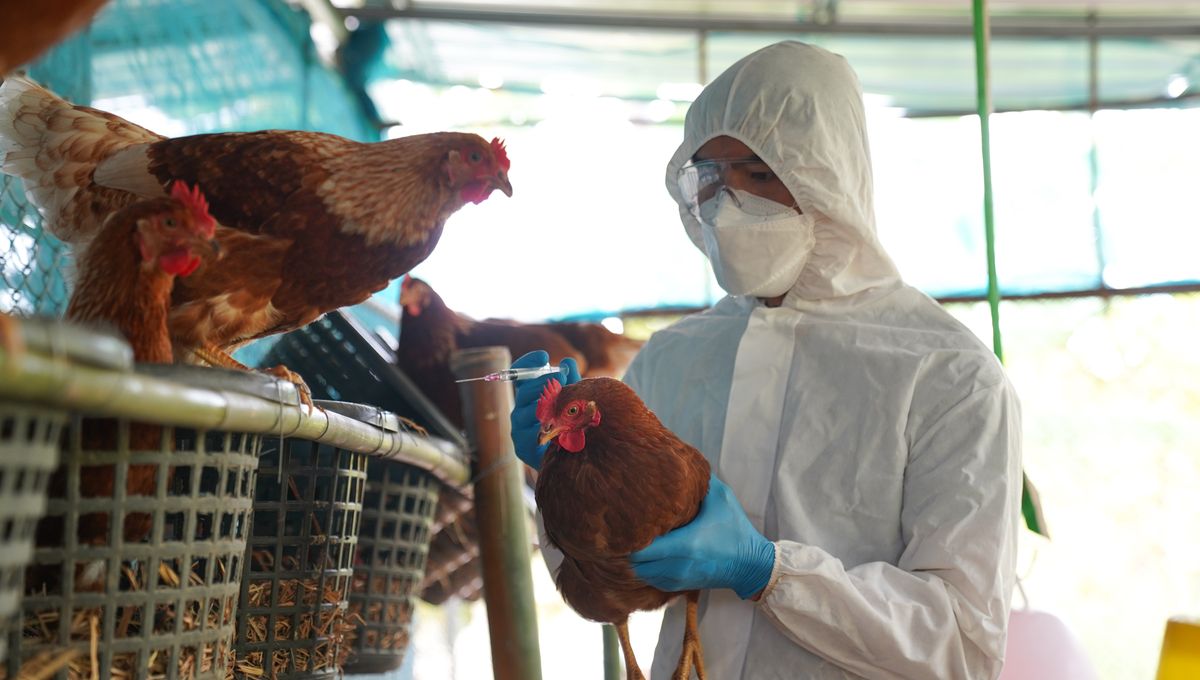
Researchers have created an H5N1 avian influenza, or bird flu, vaccine that can be administered as a nasal spray. The influenza virus vector-based nasal spray vaccine platform was first developed during the COVID-19 pandemic but now may be valuable in the fight against bird flu, which is on the rise across the globe.
H5N1 was first detected in humans in Hong Kong in 1997. Since then, the virus has spread across the planet and mutated into multiple variants, some of which are able to cross between different species.
Unfortunately, this ability to mutate and spread has made it a top candidate for triggering the next human pandemic, especially since the significant rise in cases across US dairy farms beginning in early 2024. Since March last year, the disease has spread among cattle and other animals, and has even infected some people as well.
Genetic surveillance has found mutations in H5N1 that have made it apt at infecting humans through their upper respiratory cells, and if these mutations continue then they could be become a series problem.
“There are fears that the continual evolution and accumulation of mutations for mammalian adaptation, or reassortment with seasonal influenza viruses, by the current avian H5N1 virus might increase the likelihood of human transmission and foster a new pandemic” Ying Liu, at the University of Hong Kong’s Li Ka Shing Faculty of Medicine, and colleagues explain in their new study.
As such, the need to prepare for a potential bird flu pandemic is urgent, with the US allocating over $500 million to pharmaceutical companies for mRNA-based vaccine development.
If bird flu does become more of an issue across the world, the most critical strategy for responding to it is the rapid deployment of safe and effective vaccines, just as we saw with the COVID-19 pandemic.
Current vaccines are valuable for preventing severe disease and lower the chances of mortality, but they do not necessarily do a great job at curbing viral transmission. The reason for this is because intramuscular administration – being injected in the arm, for instance – creates strong systemic antibodies, but insufficient immunity in the upper respiratory tract. In addition, most vaccines also require multiple doses to remain effective.
A nasal spray, in contrast, can be offered as a single dose that could play a vital role in protecting individuals and controlling an outbreak as it offers mucosal immunity at the site where the virus enters the body.
In order to address this, Liu and colleagues based at the University of Hong Kong’s InnoHK Center for Virology, Vaccinology and Therapeutics (CVVT) used the influenza virus vector-based nasal spray vaccine platform to produce a nasal spray for bird flu. So far, animal studies have confirmed its safety profile and ability to produce comprehensive immunity – including neutralizing antibodies, T-cell responses, and mucosal immunity in the upper respiratory tract.
Moreover, it seems one dose is enough to provide strong protection against infection, sustaining immune memory.
If further clinical trials are successful then this vaccine could be positioned as a critical reserve for future H5N1 outbreaks, which would drastically shorten development timelines. The vaccine’s nasal delivery mechanism could also curb viral transmission early in an outbreak.
The study is published in Nature Communications.
Source Link: New Nasal Spray Bird Flu Vaccine Could Help Protect Us In A Future Pandemic